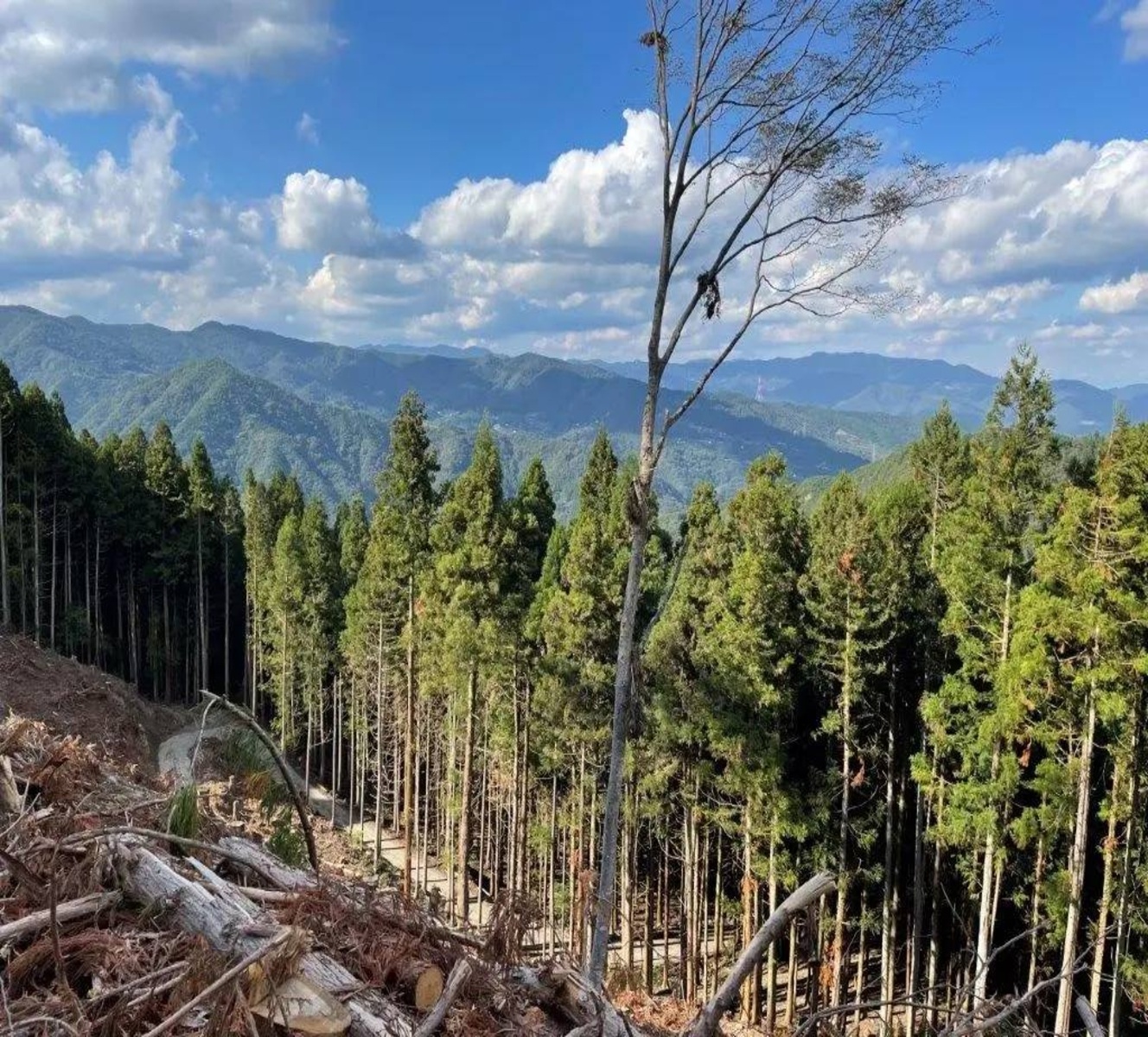
Forests cover 75% of Tokushima's prefectural land (67% of the national total).
Private forests account for 89% of the forests (58% nationwide), as most of the domain-owned forests were disposed of to the private sector at the beginning of the Meiji period.
Another feature is the high proportion of planted forests such as cedar and cypress, which account for 64% (41% nationwide), due to the progress of afforestation over the ages.
In particular, the proportion of cedar is the highest in Japan.
Characteristics of cedar in Tokushima
Strong vitality
It grows quickly and has the vitality to live for up to 1,000 years if moisture and other conditions are favourable.
Ease of processing
The cedar's straight grain patterns make it easy to work.
For this reason, it has been used for a wide range of applications, from large, strong structural timbers such as beams and girders to light and strong fittings such as fusuma (sliding doors) and shoji screens, which are a feature of Japanese houses.
Superior durability
In addition to its gentle colouration, wood has tenacious strength and excellent durability.
As there are many private houses in Tokushima that are more than 200 years old, the inherent strength of cedar can be utilised to demonstrate its ability to withstand earthquakes and typhoons.
Protecting health
Babies and families spend most of their time in their homes.
In fact, the safety of the materials used in a house is just as important as the safety of the food.
Cedar is inherently resistant to termites, and its sterilising, aromatic, deodorising, calming, humidity-controlling and soundproofing effects are reassuring for our health.
Environmental protection and contribution to the local community
Tokushima's forests are rich in resources, with a high proportion of older trees over 60 years old.
By utilising this in moderation and planting new saplings, the forest's carbon dioxide absorption capacity is increased and the forest becomes a rich source of life.
Consequently, this will also lead to a richer ocean, as well as passing on Tokushima's outstanding forestry culture, which has been passed down for hundreds of years, to future generations


